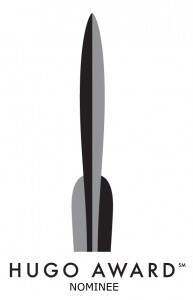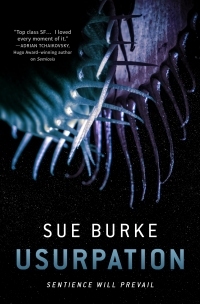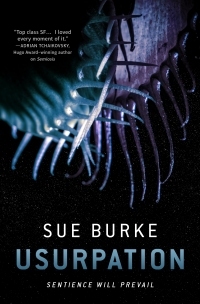Sue Burke's Blog
September 3, 2025
“En Paz” — two translations

Because “En Paz” is my husband’s favorite poem, I read it at a recent open mic here in Chicago, along with my two translations. The poem is by Amado Nervo, a Mexican poet, and it’s one of his most beloved poems, published in 1916.
My first translation aimed at keeping the meter and rhyme of the original poem. Then I thought it might be a bit sing-song, and I had to force a few meanings to make it rhyme, so I made a second translation that hewed close to the original. At the reading, people had mixed opinions about which one they preferred. How about you?
En pazMuy cerca de mi ocaso, yo te bendigo, vida,
porque nunca me diste ni esperanza fallida,
ni trabajos injustos, ni pena inmerecida;
porque veo al final de mi rudo camino
que yo fui el arquitecto de mi propio destino;
que si extraje la miel o la hiel de las cosas,
fue porque en ellas puse hiel o mieles sabrosas:
cuando planté rosales, coseché siempre rosas.
…Cierto, a mis lozanías va a seguir el invierno:
¡mas tú no me dijiste que mayo fuese eterno!
Hallé sin duda largas las noches de mis penas;
mas no me prometiste tú sólo noches buenas;
y en cambio tuve algunas santamente serenas...
Amé, fui amado, el sol acarició mi faz.
¡Vida, nada me debes! ¡Vida, estamos en paz!
At Peace
So close now to my sunset, life, I bless you,
you never gave me hopes that were untrue,
nor unjust labor, nor suffering undue;
at the end of my rough road I see
I was architect of my destiny;
Wherever I put ice in things, they froze,
when I wanted honey, its sweets I chose:
my rosebushes always grew me a rose.
…True, winter will follow my endeavor:
but you never said springtime was forever!
Indeed, I spent some long nights lost in woe;
but you never pledged just comfort to bestow;
and yet some nights I thrilled beneath moonglow…
I loved, was loved, in sunshine found release.
Life, you owe me nothing. Life, we are at peace!
At Peace
Very close to my sunset, I bless you, life,
because you never gave me false hope,
nor unjust troubles, nor undeserved blame;
because I see at the end of my hard path
that I was architect of my own destiny;
that if I took honey or ice from things,
it was because I put ice or delicious honey in them:
when I planted rose bushes, I always harvested roses.
…True, my youth will be followed by winter:
but you never told me May would last eternal!
I encountered of course some long nights of sorrows;
but you never promised me only good nights;
and on the other hand, I had some sacredly serene…
I loved, was loved, and the sun caressed my face.
Life, you owe me nothing! Life, we are at peace!
August 27, 2025
Last Fridays Poetry in Chicago

I’ll be reading at Last Fridays Poetry, August 29, 8 p.m., at Esquina Event Space, 4602 N. Western Ave., Chicago (corner of Western and Wilson Avenues). This is a small, very supportive event, and you’re welcome to come and enjoy or to read, even if you’ve never read in public before. We’ll be glad to see you.
I’ll be reading a work of my own, Marks of Time, and a poem by Amado Nervo, “En paz,” in Spanish and two different translations I made of it. This is my husband’s favorite poem in Spanish.
Expect another five to ten readers. Again, you could be one of them. There are no restrictions on what you can read, but please keep it brief.
A friend of mine, Mike, created this event as a friendly, creative, comfortable space. I have come to believe that not everyone gets to experience creative spaces as a regular part of their life.
What convinced me of that are the reactions I’ve seen at C2E2, the Chicago Comics and Entertainment Expo. It’s a huge event attended by tens of thousands of people where every kind of creativity is welcome, from costumes to visual art to writing to film-making and more. On the city bus going there, you can feel the joy among attendees. This is where they will finally find their people.
The world needs more exceptional spaces like that, large and small. For me, time spent with artists, writers, costumers, actors and other creators and seeing what they do always energizes me. That’s why I value Last Fridays. It’s like an oasis.
August 20, 2025
Calvary, bases, and other anachronisms
Recently I was reading a fantasy novel set in a parallel universe, and one character commiserated with another, saying, “You’ve suffered a calvary” — that is, she’d suffered a great ordeal. The word comes from the hill named Calvary where Christ was crucified, but the Messiah hadn’t come to that parallel universe, so no one could suffer a “calvary.” Nothing important had happened on Calvary Hill.
 The word “peanut” came into use in English in 1802. The plant is native to South America. If you’re a writer, you need to know this.
The word “peanut” came into use in English in 1802. The plant is native to South America. If you’re a writer, you need to know this.
In another book, set in medieval Europe, a friend remarked that someone “had his bases covered” — that is, he was prepared. This is a baseball expression, and baseball originated in the United States in the mid-1800s, so people weren’t covering their bases centuries earlier on a distant continent.
Yet another book, also set in medieval Europe, spoke of plans being “dynamited” by a setback. Dynamite was invented in 1867 by Alfred Nobel (who is also famous for prizes).
Speaking of medieval expressions, we all believe kings back then could shout: “Off with his head!” Actually, they probably didn’t, not even Richard III (1452-1483), because that exclamation comes from the play Richard III written by Shakespeare in 1592, and it was made popular in Alice in Wonderland by Lewis Carroll in 1865.
Speaking of the Bard, the expression “lie low” also comes from one of his plays, as did “green-eyed monster” and “break the ice.” However, Lewis Carroll didn’t invent the “Cheshire cat” or “March hare”: these expressions originated a century or more before his book.
I pay attention to this because as a writer and translator, when I’m working with historical or fantastical material, I need to bear in mind that all words and expressions originate at a specific point in time and space, and they need to be congruent with the origin and setting of the work.
For help, check the Historical Thesaurus of English. It contains almost 800,000 words from Old English to the present day, primarily based on the Oxford English Dictionary.
There, I learned that “home run” only dates back to 1953. Additional research told me that home runs became more common around that year, so apparently athletes and sports writers needed to give a four-bagger an evocative name.
The lesson, for me, is to be sensitive, remain alert, do research — and expect surprises. The past is another country. They spoke differently there.
August 8, 2025
My short story, “To Defeat Water,” at The Lorelei Signal

The Lorelei Signal Magazine has published my short story, “To Defeat Water.” If you curse Poseidon, he might curse you back, time and time again. And life after life, you can fight back.
August 6, 2025
My votes for the Hugo Award Best Novella

This year’s Hugo Awards will be presented at the Seattle Worldcon on Saturday evening, August 16. The novella category includes works from 17,500 to 40,000 words, and half of the nominees were also up for this year’s Nebula Awards.
Here are my votes, based on my opinion of the strength of the storytelling, but as always you may have a very different opinion. All the stories are worth reading, and although I think Tordotcom has good taste, I wish more publishers were offering works at this length.
6. Navigational Entanglements by Aliette de Bodard (Tordotcom) — Some space assassin-navigators are assigned to hunt down a space monster, then there’s a murder and a lot of quarreling among the four survivors. This would make a fun movie.
5. The Butcher of the Forest by Premee Mohamed (Tordotcom) — A woman ventures into a dangerous forest to save two children from a monster. A grim story told with urgency.
4. What Feasts at Night by T. Kingfisher (Nightfire) — A cottage is empty, everyone is dead, and no one will talk about it. Then things get creepy.
3. The Practice, the Horizon, and the Chain by Sofia Samatar (Tordotcom) — The chain is about an ex-slave, the practice is about the chance to become something better, and the horizon the chance to get it. A lot of social justice, told with the distance of spaceships.
2. The Tusks of Extinction by Ray Nayler (Tordotcom) — Elephants and newly-revived mammoths face extinction from ivory poachers, but they have protectors. The story explores its ideas back and forth in time to dramatize a contest between greed and survival.
1. The Brides of High Hill by Nghi Vo (Tordotcom) — Cleric Chih accompanies a bride to an arranged marriage. But something seems wrong — not to Cleric Chih but to the reader. It turns out the reader is right. Stories can deceive.
July 30, 2025
My votes for the Hugo Best Novelette Award

This year’s Hugo Awards will be presented at the Seattle Worldcon on Saturday evening, August 16.
Like other categories, novelettes have some overlap with this year’s Nebula Awards. Here are my ranked votes, and I based them on how original I thought the stories are. You may very reasonably have different criteria and choices. In fact, these two reviewers made very different rankings.
6. “Signs of Life” by Sarah Pinsker (Uncanny Magazine, Issue 59) — Two sisters reconcile after a long estrangement, each with her own secrets. A slow, personal story that takes a surprising turn toward the end, but for me, the emotions are too muted.
5. “Loneliness Universe” by Eugenia Triantafyllou (Uncanny Magazine, Issue 58) — Friends try to meet, but they can’t find each other even though they’re in the same place. Then things get more eerie (no spoilers). Not quite horror but very unsettling.
4. “Lake of Souls” by Ann Leckie in Lake of Souls (Orbit) — A denizen of a distant planet suffers a crisis of identity and a planetary explorer struggles to survive. They meet, and this changes some things. Not a new idea, and in my opinion not developed in a new direction.
3. “The Four Sisters Overlooking the Sea” by Naomi Kritzer (Asimov’s, September/October 2024) — Every now and then, Asimov’s publishes a story that isn’t exactly science fiction. A woman takes a hard look at her life and must set it right, but I saw the ending from a long way off.
2. “By Salt, By Sea, By Light of Stars” by Premee Mohamed (Strange Horizons, Fund Drive 2024) — A wizard gets an apprentice, but there’s a problem — a monster-sized dragon problem. Well told with a little humor.
1. “The Brotherhood of Montague St. Video” by Thomas Ha (Clarkesworld, May 2024) — The accidental discovery of a book printed on paper triggers an existential crisis in an electronic world with constant volatility. The understated storytelling style effectively delivers growing horror.
July 23, 2025
My votes for the Hugo Short Story Award

This year’s Hugo Awards will be presented at the Seattle Worldcon on Saturday evening, August 16. The short story category, as usual, has some overlap with this year’s Nebula Awards, and if you read no other short fiction, I recommend reading the nominated stories. You’ll come away with an excellent panorama of where the field is today.
Here are my votes, and I based them on the storytelling risks and successes. You may very reasonably have different criteria and choices.
6. “Marginalia” by Mary Robinette Kowal (Uncanny Magazine, Issue 56) — The story is based on drawings of knights fighting snails in medieval manuscript margins, which is a charming inspiration: What if knights really fought snails? A struggling family joins with their lord in a fight to the death. The story wraps up too neatly for me, so it comes in sixth, but other Hugo voters loved it.
5. “Five Views of the Planet Tartarus” by Rachael K. Jones (Lightspeed Magazine, January 2024: Issue 164) — This is flash fiction about the horrors faced by those found guilty of treason, with an ennobling, subversive twist. I especially like that very short fiction has found its way onto the ballot.
4. “Stitched to Skin Like Family Is” by Nghi Vo (Uncanny Magazine, Issue 57) — The magic contained in clothing leads a sister to her brother, then gives her power. Carefully and competently told, and Nghi Vo’s love of old (vintage?) clothes and their histories shines through.
3. “Three Faces of a Beheading” by Arkady Martine (Uncanny Magazine, Issue 58) — A convoluted story about complicity in a genocide told through multiple points of view in a multi-player RPG and mass storytelling. I admire the experimental style, even if it was confusing.
2. “We Will Teach You How to Read | We Will Teach You How to Read” by Caroline M. Yoachim (Lightspeed Magazine, May 2024: Issue 168) — A message is sent apparently to humans from a very different, brief-lived species: a simple message that holds entire lives. This is another experimental format, and it left me with a lot to think about.
1. “Why Don’t We Just Kill the Kid in the Omelas Hole” by Isabel J. Kim (Clarkesworld, February 2024) — I nominated this for the strength of the storytelling voice, and after reading all the finalists I still like it best: “… tell me there is a better solution than putting one single kid in the hole, and letting that one single kid have a miserable life, in return for the good lives of all of our children?” The story has already won the Nebula, Locus, and BSFA awards, and I think it’s a strong contender for the Hugo. It’s an update on the classic Ursula K. Le Guin story, which also won awards when it was published in 1974. A half-century later, even though our exact circumstances have changed, we still have to make tough moral choices.
July 16, 2025
A birthday song

To celebrate my 70th birthday, my husband organized a big party. He and our friends and families made the evening memorable in many ways. Among the festivities, my brother-in-law Tom Finn sang a song, and soon everyone was joining in the chorus.
You can enjoy the performance here.
Sue’s song (Sung to the tune of “Paperback Writer” by The Beatles)
She spent her life doin’ all kinds of work
That wasn’t enough for Sue Burke
Reading books from cover to cover
Despite marrying my brother, she was gonna be a sci-fi writer
Sci-fi writer
Research, then, was so tough, you see
You had to go to a place called the “library”
But things were different in the modern age
She advanced a stage, finally ditching her typewriter
Sci-fi writer
Life in Milwaukee just seemed so lame
She spent some time in Austin, then went to Spain
Being a writer’s not a life of ease
Translated Amadís, but she needed something to ignite her
Sci-fi writer
Sci-fi writer!
Habla y escribe bien español
Pues hecho un refrán en castellano
Cervantes sí mismo la certificó
Ya no es solamente una traductora
¡Es autora!
She taught us what happens when you take a chance
On a distant world with sentient plants
And Glassmakers interfere to see you through
You can’t lose with rainbow bamboo who’s quite a fighter
Sci-fi writer
And we’re really hoping that she sells the rights
To usurp a million dollars overnight
After seventy years, she has proved she can write
And for seventy more, she’ll delight us as a sci-fi writer
Sci-fi writer
Sci-fi writer!
July 14, 2025
‘Usurpation’ pre-order sale at Indigo

Indigo, Canada’s biggest bookstore, is running an online 25% off sale from July 14 to 20 for its Most Anticipated Science Fiction. This includes the pre-orders for the paperback edition of Usurpation.
While you’re there, check out the many outstanding Canadian authors. Here’s the 2025 Aurora Awards ballot, if you need a suggestion.
July 8, 2025
B&N preorder sale – buy the upcoming paperback edition of ‘Usurpation’

Barnes & Noble is holding a promotion for pre-ordered print books from Tuesday, July 8, to Friday, July 11. Prices are 25% off Premium and Rewards members. Use the code PREORDER25
The trade paperback of Usurpation will be released on October 21, 2025. If you haven’t read it yet, this is your chance to get a good price — and to buy more books from your other favorite authors!



